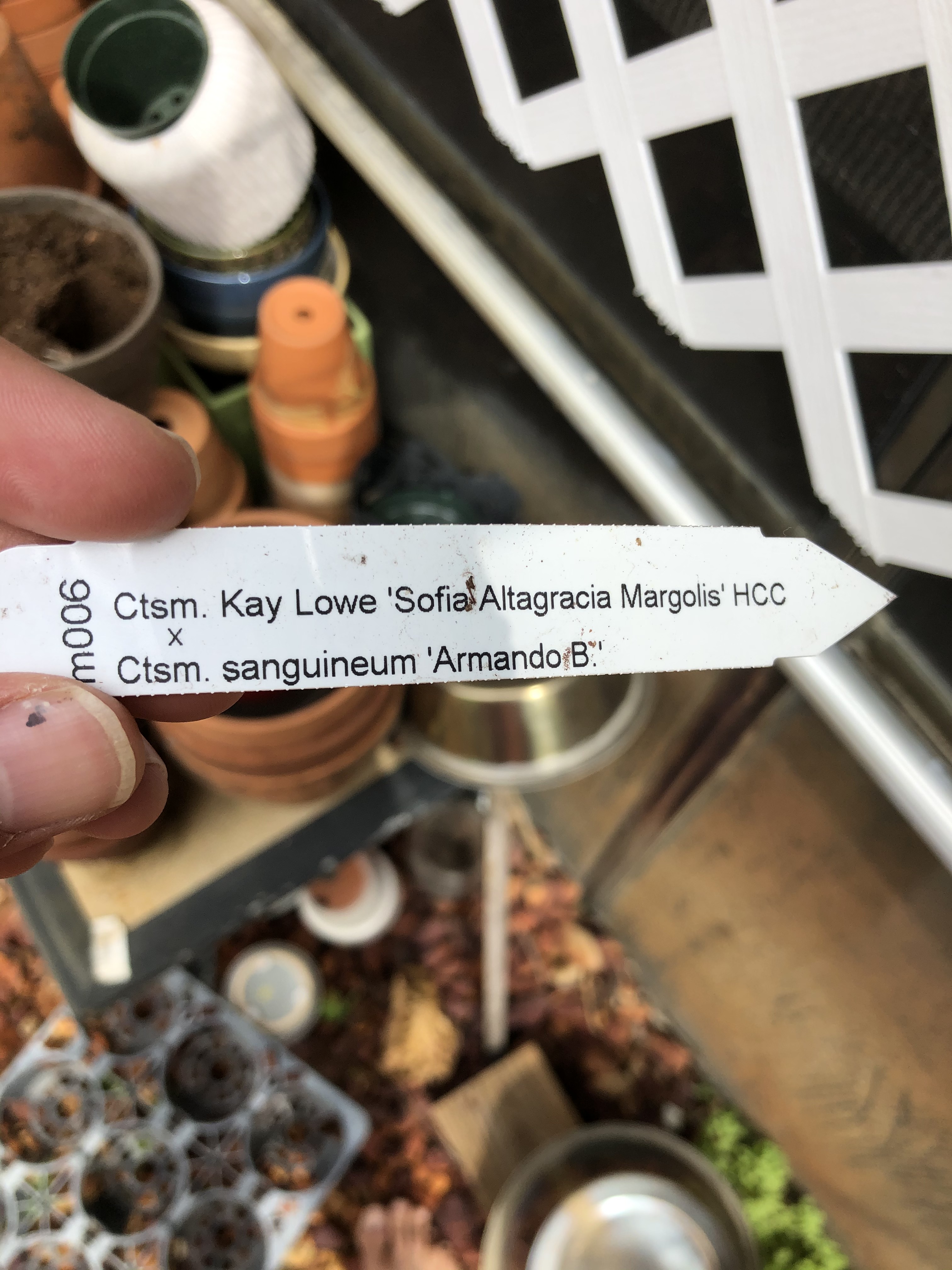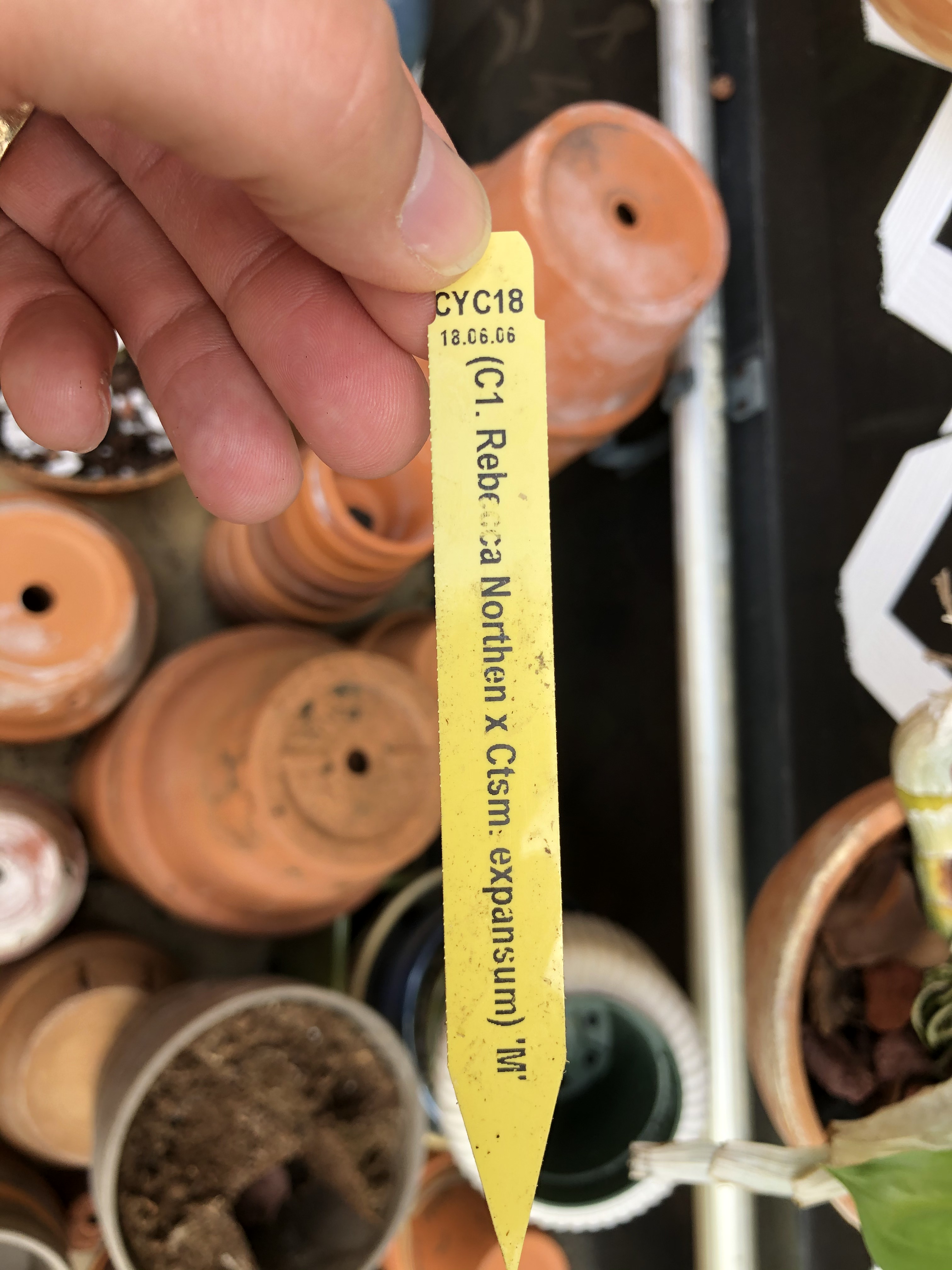a comment from a recent thread got my wheels turning and i wanted to get a conversation rolling on the topic.
I am putting it here for two reasons, i will be using my catasteums as my first examples and two, it is a nicely cultivated alliance in that some really great growers are doing the hybridizing now so we have the benefit of almost first hand transparency.
So these are the tags on most of my plants in this group
each one a cross of a multiple crossed hybrid...
(caveat) i am NOT a taxonomist nor am i good at the whole labelling thing, sorry if this is really simple and dumb
...so it becomes increasingly important that we know the particular 'var.' (if that is the correct name for the part in the single quotes)so we can know the dispositions and tendencies, correct? Is it certain that the plant will behave the same way all the time or will it be susceptible to variation over time?
My experience (limited to 5 years on the oldest of these plants) is that the plant blooms and grows the same way once it is "born" and that the variation is only random in the way the plant is propagated, is that accurate? sort of like a person.
My thinking then went into the changes over time in a particular hybrid...as in, if you seed a new cross of the same parents then that is a new 'var.' but if you clone it should be the exact same plant, correct?
does anyone know of a website that provides longer than parent genealogical charts for these or do i just have to keep going up the chain manually? looking up each parent and their parents etc?
this brings me to the other thought i was wrestling with...since the hybrids tend to be more adaptable than their species parents, does that extend the further a gene is hybridized? like is a fifth generation hybrid an easier plant to grow (in general) than a third generation?
 Tags
Tags by
J Solo, on Flickr
 Tags
Tags by
J Solo, on Flickr
 Tags
Tags by
J Solo, on Flickr
 Tags
Tags by
J Solo, on Flickr
 Tags
Tags by
J Solo, on Flickr
 Tags
Tags by
J Solo, on Flickr
 Tags
Tags by
J Solo, on Flickr
 Tags
Tags by
J Solo, on Flickr
 Tags
Tags by
J Solo, on Flickr
 Tags
Tags by
J Solo, on Flickr










































 Linear Mode
Linear Mode


